"There are few places in a life, perhaps even one, where something happens; after that there are all the other places."
(Alice Munro)
The thought put to flight. Or out of order. The thought returned. The thought disturbed by something unspeakable. Thought recreated. Compact. Adult. This day center is the womb of thoughts. But also of the commitment of thoughts. The activities. The comparisons. The talks. We allow ourselves to be impatient to grow, to concentrate, to meet. And when this happens, the meeting shows us not to fear chaos, but to dance with chaos. Because you can breathe the tumult of busy thoughts in the air. The day center redefines our priorities. And we learn, through the commitment of thoughts, to orient the life force that is within us. To release that energy that is freed with the other, here and now.
Silvia Bove
*on the cover the painting "How I see myself through you" by the author herself.
Rome, 15 March 2024 - Helping families who experience situations of mental distress within themselves, often aggravated by heavy intra-family conflicts. This is the main objective of the Multifamily Psychoanalysis Group (GPMF), the new project promoted by the Don Luigi Di Liegro Foundation in collaboration with the ASL Roma 2. The group meets for the first time on March 15th at the Foundation's headquarters.
On the occasion of the 50th anniversary of the famous conference "On the evils of Rome" strongly supported by Don Luigi, we report here an extract of his considerations.
(…) Here we discover the true origin of the meeting of the Christians of Rome on the expectations of justice and charity which took place from 12 to 15 February 1974. The city is not seen and felt as the most significant moment of a commitment and circulation of values community; it is almost never seen as the physical support walled in by the spirit of charity; it is instead seen as a place of consumption of values, of something that, no one knows who, must give to everyone for their needs and aspirations. Consumer religion and the city as a consumer environment.
From this awareness was born the idea and the need for a meeting, of an assembly type, which would offer all the components the possibility of the diocesan community of Rome, of a reflection on the city and on the responsibility, the duties that, for every Christian , arise from faith in the face of the community. The mobilization and animation of the entire Roman ecclesial community was the underlying objective of the conference, aiming to constitute an internal, personal and community awakening, to be placed before any further operational application.
The announcement of a meeting of the Christians of Rome on their city was accompanied by an analysis of the situation of the city, an analysis which had an enormous impact and gave rise to interpretations and controversies that were sometimes out of place. The meaning of the analysis is very different from an easy and sterile denunciation. Massive deformations have so upset the physical, social and moral aspect of the city of Rome that its inhabitants find it difficult to recognize themselves in it. The image of a city that has grown too quickly and in the name of selfishness and speculation presents a density of implications and problems of this kind on the urban planning and territorial planning level, on the transport and traffic level, on the of equipment and civil services, that the ongoing process risks downgrading the way of life of a population, compromising the very level of civilization.
If we try to overcome the moment of denunciation, although necessary if aimed at reconciliation and conversion, and address the issue of a precise search for responsibility, the public administration certainly cannot escape the recognition of its insufficient presence; the constraints and directions of the economic power protagonist of certain choices will be identified, but it will also be necessary to take note that certain experiences of exploitation perpetrated against the city are also the result of the absenteeism and selfishness of many, of that euphemistically called majority «silent." A silence which, if it is not always consensus, is, however, a form of apathy, of lack of vigilance, of renunciation of responsibility, of renunciation of commitment.
This situation cannot fail to be analyzed if we want to begin a work of renewal and reconciliation for a different city, not through moralistic discourses, but with profound changes in behavior and social and economic structures.
It is clear that this is a starting point, a prophetic gesture. In the final words of Cardinal Poletti, the underlining of the spirit of the meeting returns, that is «to examine, in each of us and therefore also as a community, whether or not the Church in the city of Rome is fully a leaven of salvation". On Holy Thursday 1971, in this same church, Paul VI asked the Christians the question: «Can we say that the Church of Rome excels in charity?".
The discourse, then, is and wants to be a discourse of «conversion" and not of social and political controversy. We want a different city, a new city, which belongs to everyone because it was made by everyone. A city that is the city of dialogue, between its citizens, between faith and technology, between aspirations and commitments, between Church and city, between bishop and local Christian community, rediscovering in this dialogue the specific vocation of the Pope's Diocese to be at service of dialogue with all the local churches scattered around the world.
Monsignor Luigi Di Liegro
From «The magazine of the Italian clergy», March - April 1974
Rome 17 February 2024 - The first lesson of the course "Youth disadvantage in the contemporary world: the network that heals" was held at the Don Luigi Di Liegro Foundation, aimed at volunteers, families and local mental health services. Present were the general secretary of the Don Luigi Di Liegro Foundation, Luigina Di Liegro, the regional councilor for social inclusion and personal services of the Lazio region, Massimiliano Maselli and Chiara Rogora, psychologist and psychotherapist, Dsm Uoc ASL Roma 2, Tutela Salute Mental and Developmental Age Rehabilitation.
Rome 19 February - Fifty years after the conference on the "Evils of Rome", on 19 February in the Conciliation Hall of the Lateran Apostolic Palace, the Diocese of Rome proposes a new moment of listening and discussion entitled (Dis)equalities .
The event will see the interventions of the cardinal vicar Angelo De Donatis, the president of the Lazio Region Francesco Rocca and the vice-mayor of Rome Silvia Scozzese; by Don Federico Corrubolo, professor of modern and contemporary history at the Ecclesia Mater Institute; by Andrea Riccardi, historian and founder of the Community of Sant'Egidio; by Giuseppe De Rita, sociologist and founder of Censis; by Luigina Di Liegro, general secretary of the Don Luigi Di Liegro International Foundation; by Pierciro Galeone, vice president of the Don Luigi Di Liegro International Foundation; by Giustino Trincia, director of Caritas in Rome.
Rome, 30 January 2023 - Registrations are open for the training course for volunteers, family members, youth workers and mental health workers promoted by the Don Luigi Di Liegro Foundation and the Fondation d'Harcourt, with the support of the Lazio Region. The course will be held on Saturdays from February 17th to April 20th. Eight lessons held by experts who aim to train participants on youth issues, including bullying and addictions, promoting a psychosocial support network.
Rome, 28 December 2023 - In this article Luigina Di Liegro, general secretary of the Di Liegro Foundation, highlights the "Christmas depression" and the importance of assistance to those suffering from mental distress. Remember the commitment of Don Luigi Di Liegro, founder of the Diocesan Caritas of Rome, for the continuous support of those in need. He thus takes this opportunity to announce the start of the 2024 courses of the Di Liegro Foundation to train volunteers and families in the mental health support network.
“I believe that our solidarity is simply a channel through which people must realize God's solidarity with man. I believe in the celebration of God in the sacraments, which ultimately is the celebration and contemplation of this infinite love of God for man, especially for man who feels desperate, defeated even by the conflicts and tensions of life. And God sent his only begotten son Jesus Christ to become incarnate in these problems, to incarnate himself in this story of desperation and hope, to help man realize that God is not far away, but is always incarnate, he is now a God present, that is, a God who becomes the servant of man”.
Don Luigi, 6 April 1990
Christmas occupies a central place in the thought and action of Don Luigi Di Liegro. It refers to the mystery of the Incarnation of Jesus, through which God enters the history of people, makes himself visible, becomes close. Starting from this mystery, God - to use Don Luigi's words - is no longer an abstract principle, an idea, but a reality which can be experienced. You can hear God, you can see God because he became man in Jesus. The humanity of Jesus is the face of God. This mystery - which is at the center of the Christian faith together with the great mystery of the Trinity, which is the mystery of relationship - however for Don Luigi it is not something that concerns only God. This mystery of God's becoming neighbor towards man concerns us too from that moment on. Because we too are now called to be neighbors, to incarnate ourselves, to bring love into the concrete lives of people, into their needs, into their questions. Which we must first of all discern, know how to recognise. Because through our closeness, through our presence, through our sharing, people can also today, where they are, experience the love of God that saves. Which saves every time sharing, brotherhood, takes the place of solitude. Thus we understand why for Don Luigi charity was never just a question of clothes to offer, of packages to donate. Charity is not enough to save people, it is only love that saves. But to reach people, God's love needs our love, our presence, our incarnation. The credibility of Christmas passes through each of us.
In the context of restraint prevention, the SPDC hospital department of San Filippo Neri of Asl Roma 1, in collaboration with the International Foundation Don Luigi Di Liegro, proposes a pilot project aimed at building a network pathway against isolation that can help hospitalized people better cope with an inherently complex situation.
The project includes the activation of a process that is not exclusively medical but also social and supports relational skills and personal effectiveness, respecting the condition of fragility of the participants and enhancing their resources. Through art-mediated communication (music, painting, manual work objects, writing and reading, body movement, etc.), exchange becomes possible, and the professional acts as a mediator of interpersonal communication in the group.
The content and form of the workshops were designed and chosen to promote socialization among participants, listening, and mutual recognition, respecting each individual's space and the free choice not to participate or simply to observe, depending on the participants' feelings. The aim is to foster an atmosphere of harmony and mutual acceptance as much as possible.
Each meeting is complete in itself, considering that the composition of the group is continuously changing. Users are given the freedom to participate or not, as they choose, each time.
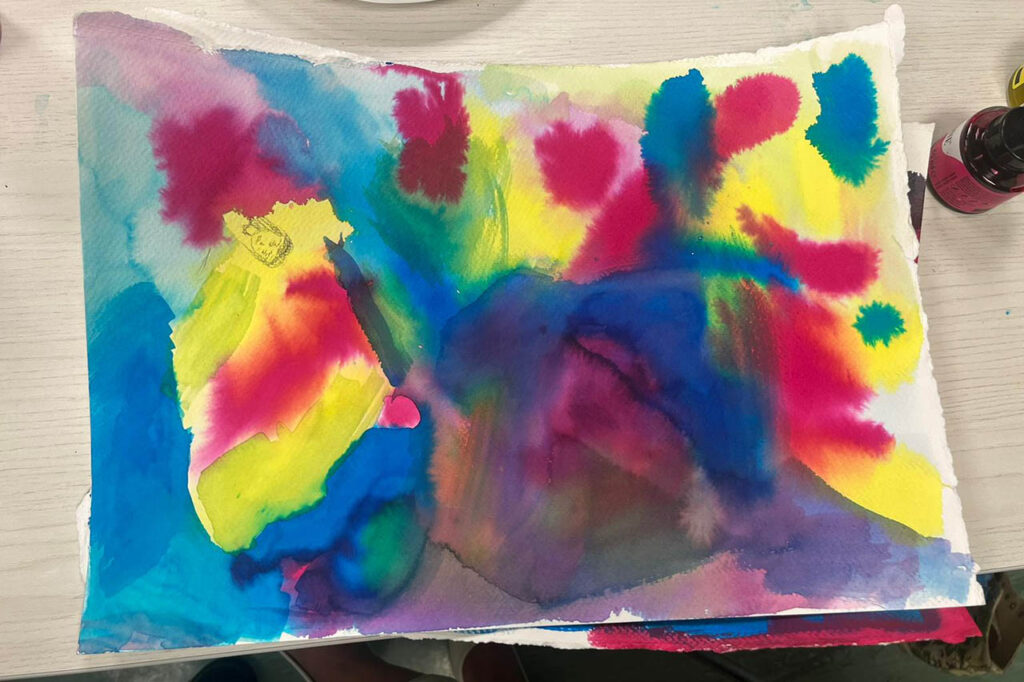
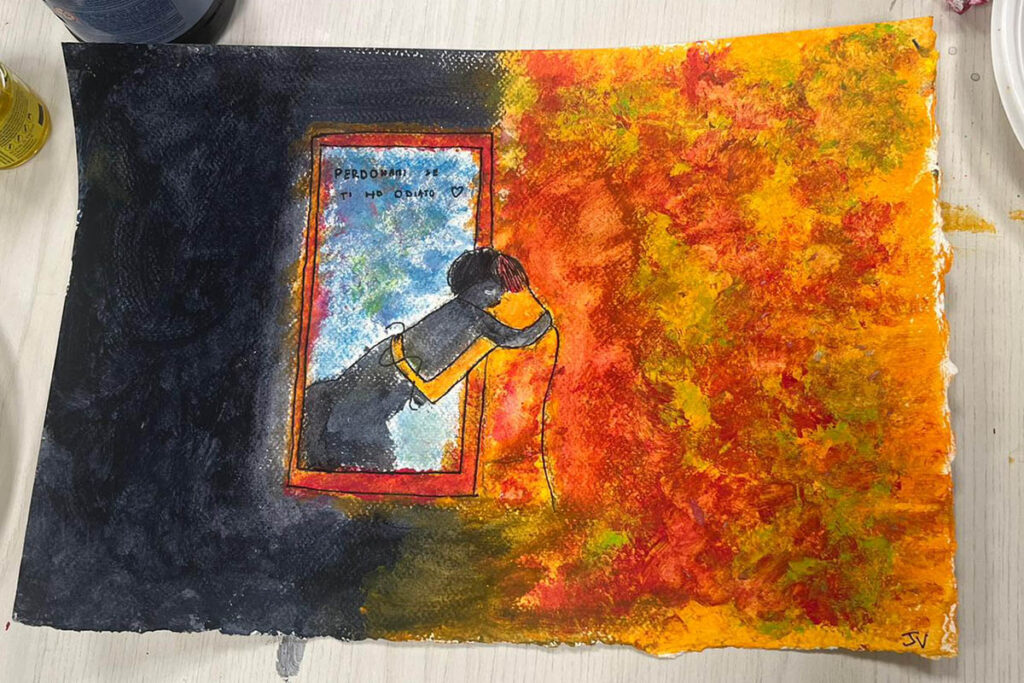
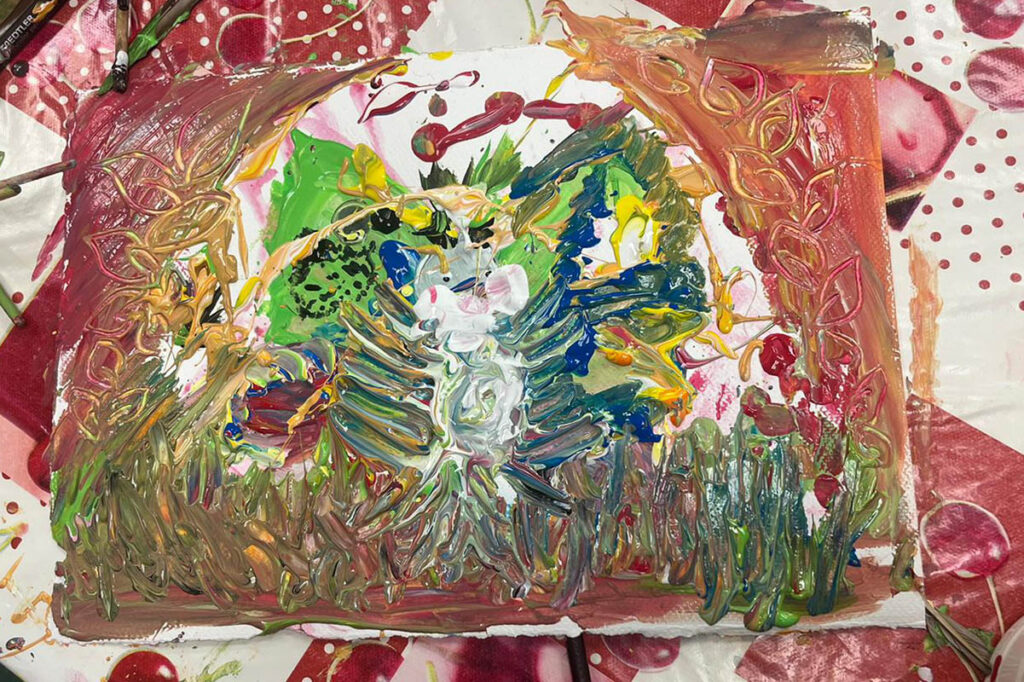
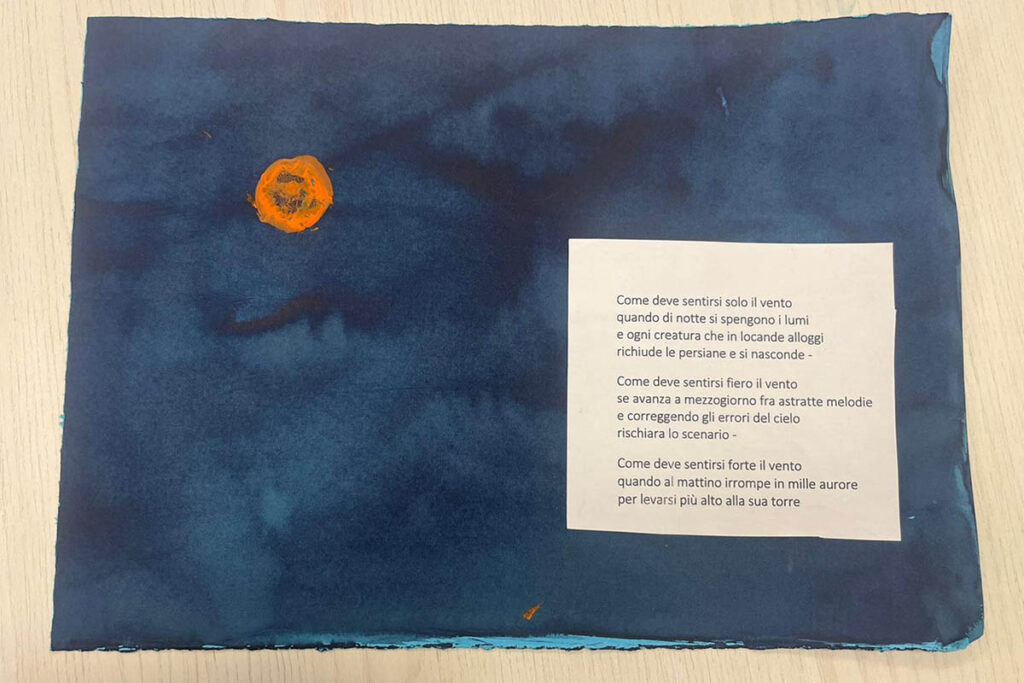
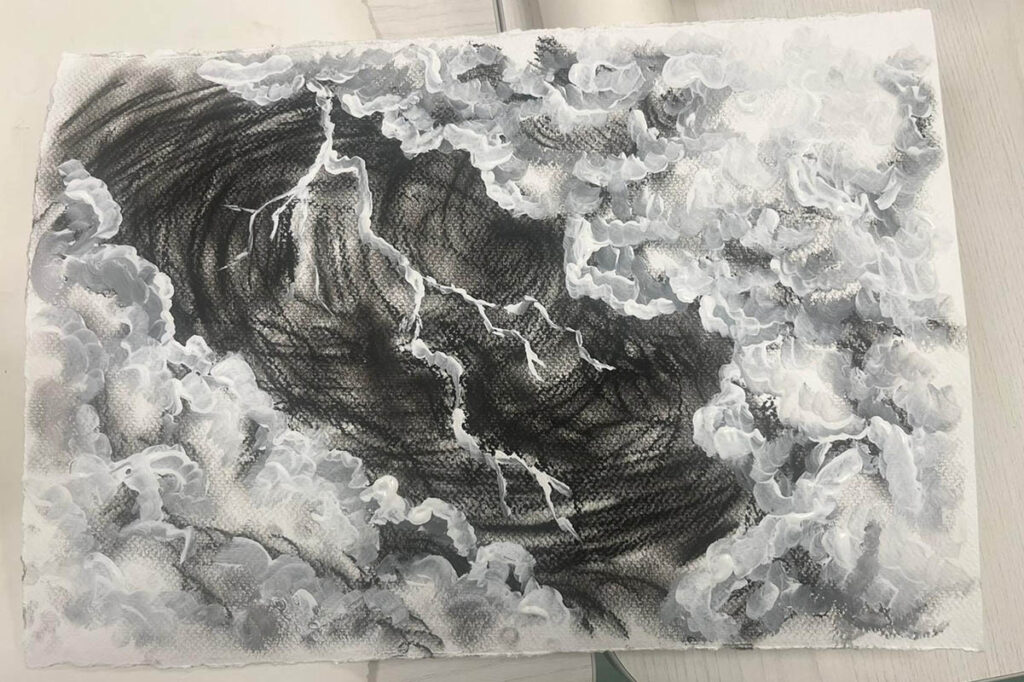
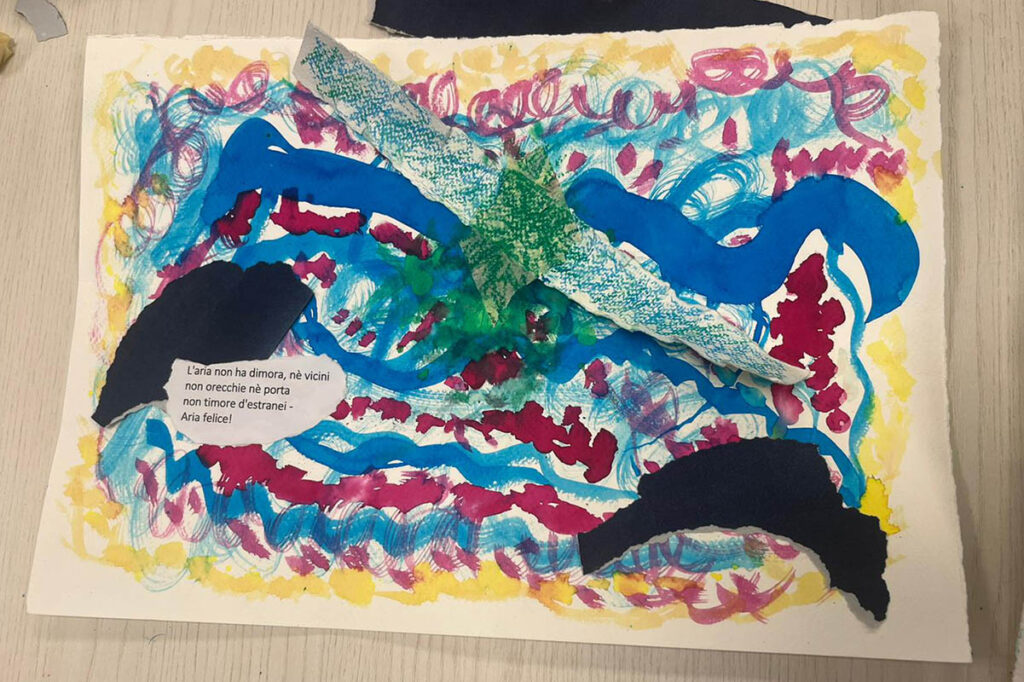
The Art4Me project connects mental health and art and aims to create a unique opportunity to provide a new platform for sharing knowledge across borders and stakeholders, and a path for better citizen empowerment with or at risk of having mental health problems. A long series of new tools is therefore needed to address mental health. While art and creative expression have been a central element of European culture for millennia, the use of art as a tool for mental health has been poorly mapped and experiences often not shared.
The project aims to: